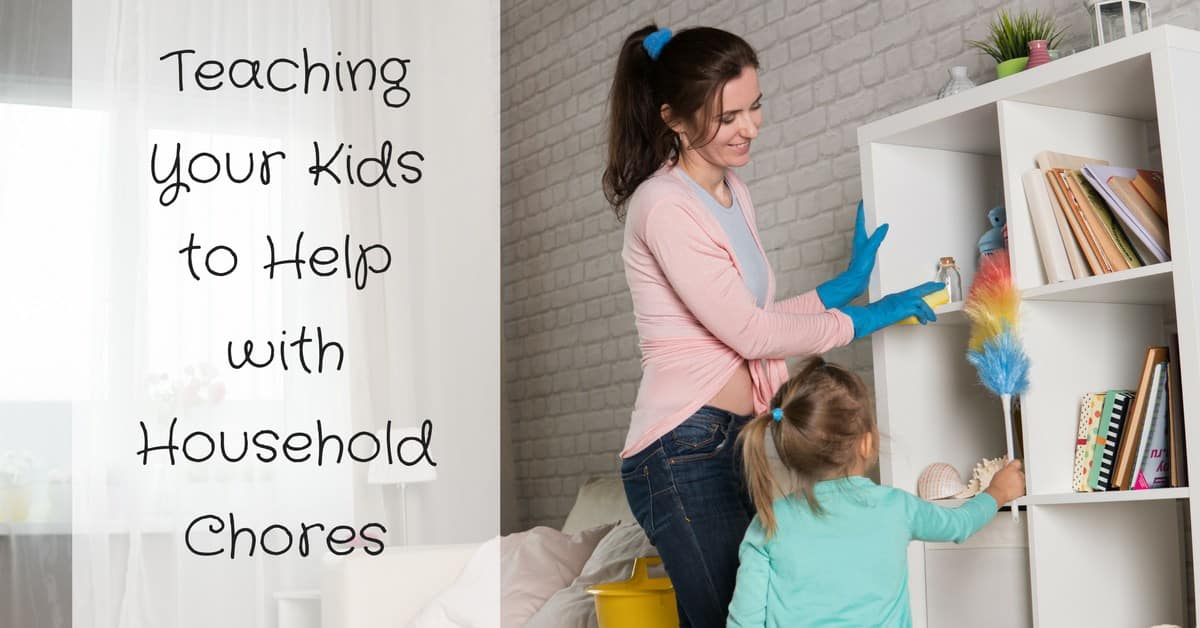
Other animals don’t have to do household chores, but in nature, purposeful play is typical. When a kitten pounces on a ball of wool, it’s learning vital skills for its future survival as a hunter. Puppies chasing their own tails are developing motor skills and spatial awareness. A bird stretching its wings in the nest is preparing for flight.
It’s never too early to get kids involved helping with household chores. Kids as young as 2 or 3 years old can lay the foundations for skills which will become useful later in life. They’ll learn that these duties are a part of daily life and that everyone has a role to play in running the household.
For toddlers, helping is fun. It’s no different from play. Your youngest kids can help you fold clothes, wipe surfaces, sweep the floor, or put stuff in the trash. They can help put their toys away, look after pets, and water plants.
RELATED: The Ultimate List of Age-Appropriate Chores
DOWNLOAD: Our Ultimate Chore List
While their efforts may make only a small contribution or none at this stage, you’re teaching them that helping is reasonable and fun. They’re also developing crucial motor-eye coordination skills and how to cooperate with others to get things done.
Young kids love joining in and copying what the adults do. That’s why “mummies and daddies” is such a popular game. Helping also builds confidence and self-esteem. Give them every opportunity and offer them plenty of praise.
As they get older and start school, they can help prepare their lunch pack, sort out their clothes, make their beds, and wash up after breakfast. Don’t worry if the bed isn’t well made and the washing up needs doing again after they’ve finished! Reward their willingness and effort with praise, and in time the results will improve, too.
Older children will appreciate having more responsibility. It helps build trust and their sense of pride. Once you’ve shown them how to do more complex tasks, leave them to it. Don’t micromanage their activity, but be available to help if they need it. From the age of 10 onward, most children are ready to develop their problem-solving skills and self-reliance. Helping with household chores is a great way to start.
Once your kids are in their teens, their contribution is no longer play but part of real life. If you started them early, are reasonable in your requests, let them take part in decision-making, and continue to give them praise and support, you should have no problems. Most teens want to become friends with their parents and show their “equality.”
Teens can do shopping errands, cook meals, help with younger kids, walk the dog, cut the grass, and even earn pocket money and contribute to household finances with a part-time or weekend job. It’s an excellent opportunity for them to learn real skills which they can use at university, where they may share an apartment with friends, or when living alone or with a partner. Avoid gender stereotyping. Boys need to learn to cook and clean just as much as girls should understand electronics and how to do basic car maintenance.
The key to success is to let children help as soon as they’re ready. Start as early as possible in your kids’ lives and make it fun. Recognize their changing needs as they grow up and adapt how they help in line with their development. Never use chores as a punishment and always give praise where praise is due. If you follow these basic principles, your kids will learn to help, cooperate, and be responsible members of the household and the broader community.

